I study the ecological information contained in natural accumulations of bones (death assemblages). Through a multidisciplinary approach that brings together ecology, wildlife management, conservation biology, paleobiology, and GIS, my research explores the ecological data contained in bone accumulations from the modern, sub-fossil, and fossil realms. Using fieldwork, quantitative analyses, and statistical modeling, I am refining our understanding of the biological data that is contained in bone accumulations and providing new tools for recovering those data from recent, historical, and fossil accumulations.
Faculty & Staff
SEaS Faculty
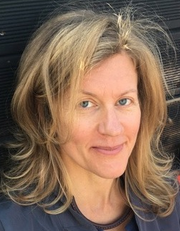
Julia S. Carlson
Associate Professor, School of Environment and Sustainability
240 ARTSCI
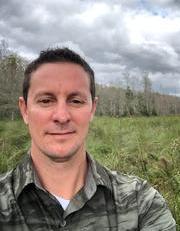
Bob Newton Hyland
Associate Professor Educator, School of Environment and Sustainability
350E ARTSCI
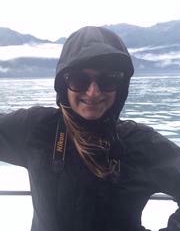
Teri A. Jacobs
Asst Professor/ Adj Ann/ Director of EVST Undergraduate Studies/ A&S Geography & Environmental Studies, School of Environment and Sustainability
401G Braunstein Hall
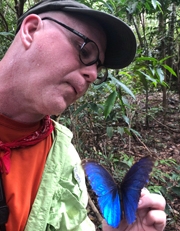
Stephen F. Matter
Associate Professor, School of Environment and Sustainability
731I Rieveschl Hall
Department of Biological Sciences, ECBR, SBBE
Ecology; Population Ecology; Metapopulation Dynamics; Dispersal Behavior; Community Patterns and Dynamics; Insect Plant Interactions; Modelling
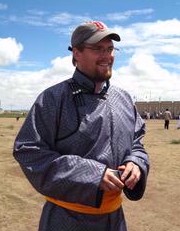
Daniel Murphy
Associate Professor, School of Environment and Sustainability
4th Braunstein Hall
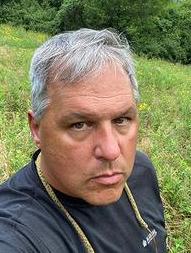
Kenneth Petren
Professor, School of Environment and Sustainability
800C Rieveschl Hall
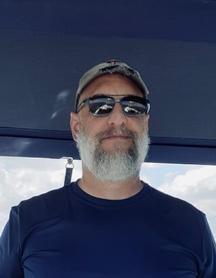
Robert A Skipper
History and Philosophy of Biology, Philosophy of Science, School of Environment and Sustainability
261C ARTSCI
Skipper's main research focuses on the origins and development of evolutionary genetics. In particular, he works on problems about the structure of biological controversies, theory change, theory/model assessment, theory/model structure/interpretation, evolutionary dynamics, biological explanation, and epistemology of biological experiments.
In addition, Skipper has interests in environmental philosophy, philosophy of food, and obesity science.
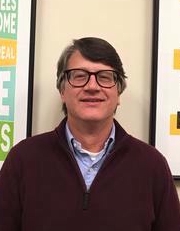
David S Stradling
Zane L. Miller Professor of Urban History; Interim Head, Department of History , School of Environment and Sustainability
360 ARTSCI
David is the author of several books, including The Nature of New York: An Environmental History of the Empire State (Cornell University Press, 2010), Making Mountains: New York City and the Catskills (University of Washington Press, 2007), Smokestacks and Progressives: Environmentalists, Engineers and Air Quality in America, 1881-1951 (Johns Hopkins University Press, 1999), and, with Richard Stradling, Where the River Burned: Carl Stokes and the Struggle to Save Cleveland (Cornell University Press, 2015). He is currently writing a global history of dredging.
David earned his PhD from the University of Wisconsin-Madison in 1996, after having earned a BA and MAT from Colgate University. Living in Clifton, he raised two daughters with his partner Jodie, and he commutes to campus on foot through Burnet Woods.
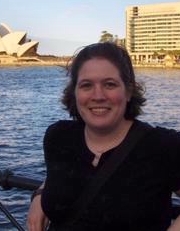
Sarah Janette Sturmer
Instructor - Adjunct Ann, School of Environment and Sustainability
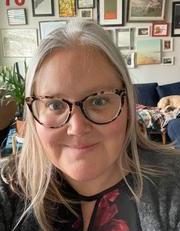
Amy Townsend-Small
Professor of Environmental Science, School of Environment and Sustainability
605 Geology-Physics Building
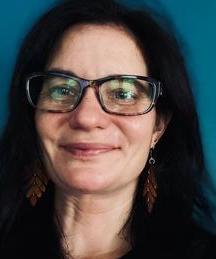
Laura C Zanotti
Professor, School of Environment and Sustainability
464 Braunstein Hall
Professor and Director, School of Environment and Sustainability
Affiliate Faculty, Department of Anthropology
Collaborator + mentor + researcher. Zanotti is the Professor and Director of the School of Environment and Sustainability (SEaS). Zanotti has more than two decades of experience as an interdisciplinary social scientist who partners with Indigenous Peoples, Traditional Peoples, and Local Communities to cultivate sustainable livelihoods and well-being. Specializations include: collaborative, transdisciplinary projects and creating mixed methods ethnographic teams. Dedicated to opening and transforming the academy and providing undergraduate and graduate students generative experiences to thrive in the multicultural and interconnected world in which they live, play, and work. Pronouns: she/her/hers. We would love for you to join our community, earn a degree in SEaS, or simply stop by. Find out more here.
Google Scholar Profile
ORCID iD: 0000-0003-2712-4284
Affiliate Faculty
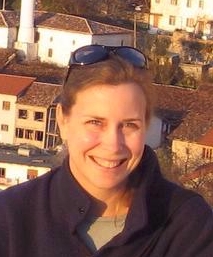
Susan E Allen
Associate Professor, Department Head, NAGPRA Director, School of Environment and Sustainability
458 Braunstein Hall
Affiliate Faculty, School of Environment and Sustainability
Affiliate Faculty, European Studies
Dr. Allen's current research collaborations investigate the role of agriculture and climate change in the emergence of social inequality in the Aegean (Greece) and Balkans (Albania, Croatia), the transition to agriculture in southern Europe, and the historical and political ecology of Mediterranean wetlands. As part of her research projects on these themes, she also works with archaeobotanical materials to interrogate formation processes that affect assemblage composition and interpretive potential.
As Co-Director (with Ilir Gjipali, Institute of Archaeology, Tirana) of the Southern Albania Neolithic Archaeological Project (SANAP), she is working toward publication of an edited monograph on their results from surface survey, coring, and excavation at the Early Neolithic site of Vashtëmi and survey and / or coring at several other Early Neolithic sites in the region.
In cooperation with China Shelton (ACOR), she conducts archeobotanical recovery and analysis for the Iklaina Archaeological Project, directed by Michael Cosmopoulos (UMSL), focused on excavation of the Mycenaean site of Iklaina in southwestern Greece.
In the lab, she has been collaborating with graduate student Martha Wendel (MA 2019) to complete analysis and publication of seed and charcoal remains from two sites in northern Albania excavated as part of the Projekti Arkeologjik i Shkodrës (PASH), directed by Michael Galaty (U. Michigan).
She was recently awarded funding from the University Research Council to facilitate her collaboration with the Cetina Valley Survey (CeVaS), directed by Helena Tomas (U. Zagreb). Her sub-project within CeVaS focuses on documentation of human-environment landscape dynamics in the valley.
Dr. Allen encourages potential graduate students, particularly those with interest in palaeoethnobotany, archaeobotany, ethnobotany, or environmental archaeology, to reach out to her directly.
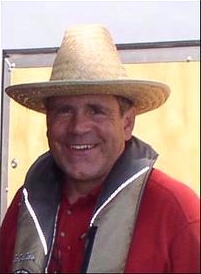
Richard Allan Beck
Professor, School of Environment and Sustainability
207 Braunstein Hall
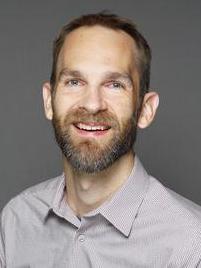
Andrew Bernier
STEM and Sustainability Education, School of Environment and Sustainability
Teachers College
He was a secondary classroom teacher for 6 years teaching sustainability, biology, and general science courses. He also managed an afterschool youth media center after working as a science and innovation senior field correspondent for NPR member station KJZZ in Phoenix, AZ.
Faculty and Scholar Affiliations:
- UC School of Environment and Sustainability
- UC Center for Public Engagement with Science
- Arizona State University - Global Futures Scholar in the Julie Ann Wrigley Global Futures Laboratory, Global Institute of Sustainability and Innovation.
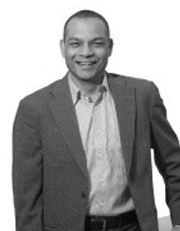
Pravin Bhiwapurkar
Assoc Professor, School of Environment and Sustainability
7213 DAA Addition
I have worked as a sustainability expert on over 6 million square feet of commercial projects to reduce peak energy demand. Utility companies funded this effort. By working in an interdisciplinary team, I helped improve the building performance by integrating environmental technologies early in the design process and creating evidence by employing energy modeling and simulation approaches. I also conducted field studies to assess the building performance after its completion for statewide energy efficiency programs in the Midwest region via energy audits. This team effort received the “Exemplary Award” by the American Council for Energy-Efficient Economy.
My works have been awarded nationally and internationally. I have received a prestigious India-US exchange scholarship to pursue my doctorate, and my research work was awarded an honorary mention at the International Association of Urban Climate conference in Gottenberg, Sweden. My works in India received three national awards for designing and analyzing low-income communities that focused on sustainability using the self-help (design-build) approach. In addition, I was a member of the “Innovative Curtain Wall Design Competition” team that received an honorable mention by the American Institute of Architects-New York while working at the Center for Architectural Science and Ecology in New York City.
My works are published in journals and conferences, including Architectural Science Review, Intelligent Buildings International, Architectural Research Center Consortium, Passive and Low Energy Architecture, and the International Congress of Biometeorology. Previously, I taught at the Rensselaer Polytechnic Institute’s industry-academic collaborative unit, Center for Architecture Science and Ecology, in New York City, Montana State University at Bozeman, and Kent State University in Kent, OH.
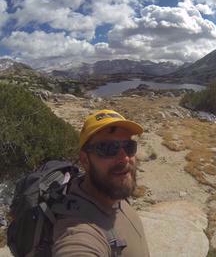
Michael T Booth
Visiting Scholar, School of Environment and Sustainability
Rieveschl Hall
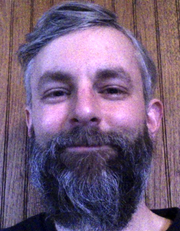
Jeffrey L Brewer
Asst Professor - Educator, School of Environment and Sustainability
400A Braunstein Hall
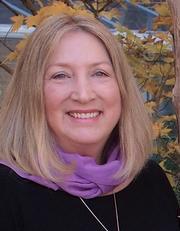
Victoria Carr
Professor, Early Childhood Education (Birth-5) & Executive Director, Arlitt Center for Education, Research & Sustainability , School of Environment and Sustainability
2150H EDWARDS 1 Edwards Center
She is co-chair of Leave No Child Inside Collaborative of Cincinnati and created the Education for Environmental Sustainability certificate, a UC interdisciplinary undergraduate opportunity for students. She co-founded the Cincinnati Nature Playscape Initiative and implemented the Arlitt Professional Educator Learning Series. Dr. Carr served for several years on Cincinnati Nature Center's Board of Directors and continues to work closely with its programming and applied learning committee. She has served as the faculty advisor for the UC Equestrian Team since 2006.
Dr. Carr mentors doctoral students and teaches graduate and undergraduate courses within the School of Education, primarily focused on nature-based early learning. She conducts research and publishes books and articles on ECEfS, children and nature, teacher efficacy, and challenging behaviors in early childhood settings. She has generated over $20M in funding related to programming and research in early childhood education during her UC career. Her research on informal science learning in playscapes was supported by the National Science Foundation and she has had multiple projects supported by the PNC Foundation. She conducted research on a community-built playground in Papua New Guinea with her Australian colleagues and continues to collaborate with Arlitt Center researchers and graduate assistants to work with agencies and groups interested in transforming playgrounds into playscapes.
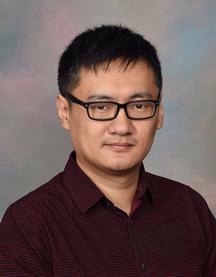
Xi Chen
Assoc Professor, School of Environment and Sustainability
Braunstein Hall
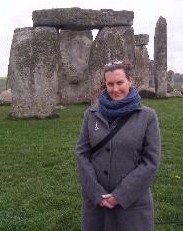
Brooke E Crowley
Professor, Stable Isotope Ecology, Quaternary Paleoecology, School of Environment and Sustainability
503 Geology-Physics Building
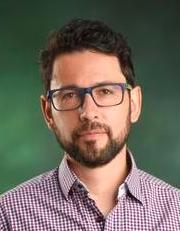
Diego F. Cuadros
Assistant Professor, School of Environment and Sustainability
210F DIGITFUT
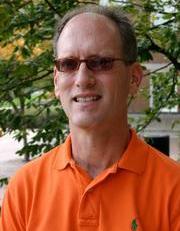
Steve Paul Depoe
Professor - Adj Ann, School of Environment and Sustainability
4231A CLIFTCT
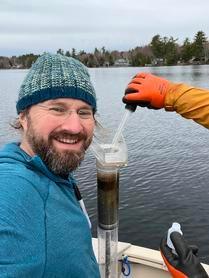
Aaron Diefendorf
Organic and Isotope Geochemistry, School of Environment and Sustainability
610 Geology-Physics Building
Please see my website for current information, a curriculum vitae, information about our organic and isotope geochemistry facilities.
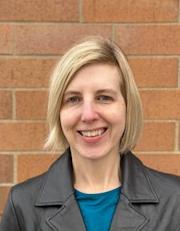
Laura D. Dudley Jenkins
Professor of Political Science, Faculty Affiliate WGSS and Asian Studies , School of Environment and Sustainability
5140 CLIFTCT
Her book Religious Freedom and Mass Conversion in India (Penn Press 2019) won the Hubert Morken Best Book Prize from the Religion and Politics Section of the American Political Science Association (APSA). A study of mass conversions to Christianity, Buddhism, and Judaism and ongoing efforts to prevent conversions, Jenkins reveals how "religious freedom" arguments and laws have actually undermined the religious freedom of women, lower castes, and religious minorities.
Jenkins' book Identity and Identification in India: Defining the Disadvantaged (Routledge, 2003, 2009) examines competing demands for affirmative action on the basis of caste, religion, class, and gender and the ways the government identifies recipients through the courts, census, and official certificates. Her research as a Fulbright New Century Scholar in South Africa and India resulted in Affirmative Action Matters: Creating Opportunities for Students Around the World, co-edited with Michele S. Moses (Routledge 2014).
In her articles, she analyzes religious freedom and conversion, competing minorities’ claims for affirmative action, colonial and contemporary government anthropology, the role of social science in anti-discrimination law, reserved legislative seats for women, and the role of culture and the arts in sustainable development.
Jenkins' book chapters examine anti-Muslim political communication in the US and India, religious family laws, mass religious conversion as protest, comparative affirmative action, minority rights, historically Dalit colleges, anxious secularism, women and development, regulation of religion, and methodological diversity in political science.
In addition to two Fulbrights, Dr. Jenkins has received fellowships from the Dartmouth Humanities Center and the United States Institute of Peace.
Religious Freedom and Mass Conversion in India. Philadelphia: University of Pennsylvania Press, 2019.
Hubert Morken Best Book Award
APSA Religion and Politics Section
Affirmative action matters: Creating opportunities for students around the world. (with Michele S. Moses). New York: Routledge, 2014.
Identity and Identification in India: Defining the Disadvantaged. London and New York: RoutledgeCurzon 2003, reissued in paperback by Routledge 2009.
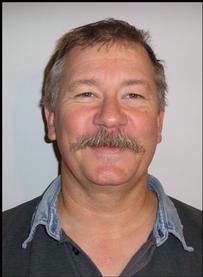
Nicholas P Dunning
Professor , School of Environment and Sustainability
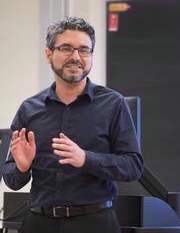
J. Mauricio Espinoza
Assistant Professor of Spanish and Latin American Literature/Cultural Studies , School of Environment and Sustainability
5260 CLIFTCT
In addition to research, I write original poetry and translate the work of Central American poets (particularly the twentieth-century Costa Rican poet Eunice Odio).
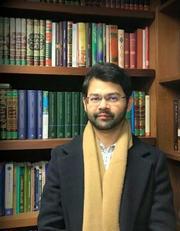
Muhammad U. Faruque
Associate Professor and Taft Center Fellow (AY 23-24), School of Environment and Sustainability
5240 CLIFTCT
His book Sculpting the Self (University of Michigan Press, 2021) won the prestigious 31st World Book of the Year Award from Iran. The book addresses “what it means to be human” in a secular, post-Enlightenment world by exploring notions of selfhood and subjectivity in Islamic and non-Islamic philosophical literatures, including modern philosophy and neuroscience. He is the author of three books and over fifty academic articles, which have appeared (or are forthcoming) in numerous prestigious, peer-reviewed journals and edited volumes such as Philosophy East and West, Philosophical Forum, Journal of Contemplative Studies, Arabic Sciences and Philosophy (Cambridge), Sophia, Journal of Sufi Studies (Brill), Religious Studies (Cambridge), and Ancient Philosophy. He has delivered lectures in many North American, European, Asian, and Middle Eastern universities. He gives public lectures on a wide range of topics such as climate change, spirituality, meditation, AI, Islamic psychology, and Islam and the West. He is also a recipient of numerous awards and fellowships, including the prestigious Templeton Foundation Global Philosophy of Religion grant and the Title IV Grant, U.S. Dept. of Education.
While his past research has explored modern and premodern conceptions of selfhood and identity and their bearing on ethics, religion, and culture, his current book project entitled The Interconnected Universe: Sufism, Climate Change, and Ecological Living aims to develop a new theory of the human and the more-than-human world based on a cross-cultural, multidisciplinary approach that draws on the environmental humanities, on one hand, and Sufism and Islamic Contemplative Studies, on the other. Alongside developing a theory of what he calls the “interconnected universe,” this study also argues that Sufi contemplative practices support and foster an active engagement toward the planet’s well-being and an ecologically viable way of life and vision through an “anthropocosmic” vision of the self. He is also at work on a book on AI and the existential threats of information technology. He also just published an edited volume entitled From the Divine to the Human: New Perspectives on Evil, Suffering, and the Global Pandemic (co-edited with M. Rustom and published by Routledge). In addition, he has a forthcoming edited volume A Cultural History of South Asian Literature, Volume 3: The Early Modern Age (1400-1700) (co-edited with S. Nair).
In his personal life, he loves gardening (plant life fascinates him), spending time in nature, travelling (he always likes to explore new places!), trying out new cuisines, hiking, cooking, sports (esp. tennis, table tennis, and chess), and watching movies. He also has a passion for classical Indian (raag) and Persian music.
He is affiliated with the departments of Philosophy, Women’s, Gender, and Sexuality Studies, Environmental Studies, and the Religious Studies Certificate program.
Website: https://muhammadfaruque.com/
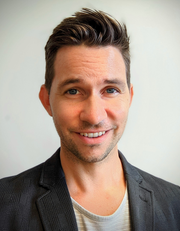
Abel Thomas Gustafson
Assistant Professor, School of Environment and Sustainability
4262 CLIFTCT
Dr. Gustafson's research has been published in premier academic journals such as Nature Energy, Nature Climate Change, Proceedings of the National Academy of Sciences (PNAS), and Journal of Environmental Psychology.
His first-authored research has been covered in New York Times, The Washington Post, Huffington Post, Business Insider, VICE, Axios, and others. His co-authored research has also been covered in Reuters, ABC News, CNN, LA Times, Five Thirty-Eight, Forbes, National Geographic, Rolling Stone, and others including The Onion.
Before joining the University of Cincinnati, Dr. Gustafson was a postdoc at Yale University (2018-2020) and earned his Ph.D. at the University of California, Santa Barbara (2018).
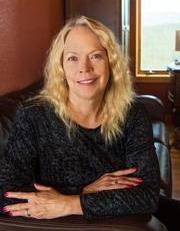
Kristen Iversen
Professor, School of Environment and Sustainability
214B ARTSCI
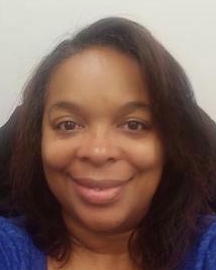
Latonya Jackson
Research Assistant Professor, School of Environment and Sustainability
422 QA Rieveschl Hall
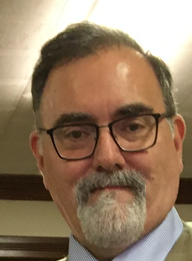
Jason N. Krupar
Associate Professor, School of Environment and Sustainability
310E ARTSCI
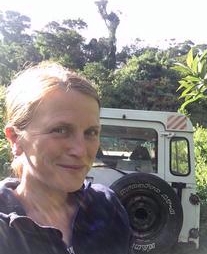
Lucinda P Lawson
Asst Professor - Research, School of Environment and Sustainability
820F Rieveschl Hall
I teach in the introductory Environmental Science course series (EVST 1012) where we tackle the environmental challenges of our times.
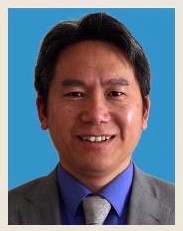
Lin Liu
Professor, Graduate Director, Co-Director of GIS Center, School of Environment and Sustainability
400E Braunstein Hall
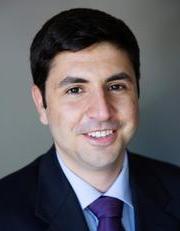
Eduardo Joseph Martinez
Assistant Professor, School of Environment and Sustainability
5254 CLIFTCT
My research is in democratic theory and focuses on standards for evaluating institutions and practices within democracies, such as administrative agencies, civic education, representation, and political partisanship. For more on my research, please see my website: eduardojmartinez.com
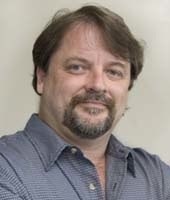
Eric Franklin Maurer
Assistant Professor Educator, School of Environment and Sustainability
Braunstein Hall
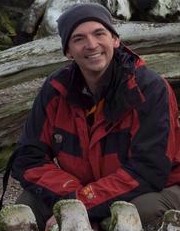
Joshua H Miller
Assoc Professor, School of Environment and Sustainability
509 Geology-Physics Building
Carolyn Kelley Patterson
School of Environment and Sustainability
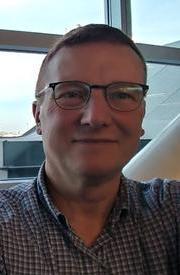
Kevin N Raleigh
Department Head, Associate Professor Educator, School of Environment and Sustainability
401-I Braunstein Hall
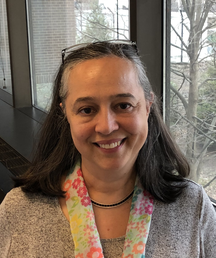
Olga Sanmiguel-Valderrama
Associate Professor in Women's, Gender, & Sexuality Studies, School of Environment and Sustainability
3314 French Hall
Born and raised in Colombia, South America, Dr. Sanmiguel-Valderrama practiced law in Colombia for five years before migrating to Canada in her late 20s. Dr. Sanmiguel-Valderrama earned her LLM in international human rights law at the University of Ottawa, where she also worked at the Human Rights Research and Education Center co-directing a women's project with CEMUJER in El Salvador (Central America) funded by the Canadian International Development Agency (CIDA). In 2004, she graduated with her Ph.D. in Law from Osgoode Hall Law School at York University in Toronto, where she was also affiliated to CERLAC, The Centre for Research on Latin America and the Caribbean at York University.
On the basis of extensive fieldwork in Colombia, her research and publications examine the contradictions between neoliberal international trade and military aid on the one hand, and respect for individual and collective human rights –in particular labor, environmental, and equality rights for women and racial minorities—on the other hand. These relationships and contradictions are examined through case studies where both trade and human rights laws and practices are in operation: first, the Colombian export-led flower industry. Her upcoming book (2012) is provisionally titled “No Roses Without Thorns: Trade, Militarization, and Human Rights in the Production and Export of Colombian Flowers” (click here to see book prospectus). Second, though the case of NAFTA and undocumented migration of Mexican and Central American into the USA.
Dr. Sanmiguel -Valderrama have published various articles in prestigious international academic journals presenting her research findings on the interrelationship between globalization, international trade, militarism, social reproduction, and human rights from multidisciplinary and transnational anti-racist feminist approaches. Her research have been supported by competitive grants from the Social Sciences and Humanities Research Council of Canada, the Charles Phelps Taft Research Center, and the University of Cincinnati Research Council. Professor's Sanmiguel-Valderrama current areas of research and teaching are family-work conflict under globalization, the relationships between military aid, trade, and human rights in Colombia, feminist mothering, women, gender and law, international women's rights, and women's labor rights.
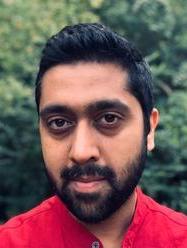
Shaunak Sastry
Professor of Communication and Provostal Fellow (2024-2025), School of Environment and Sustainability
4272 CLIFTCT
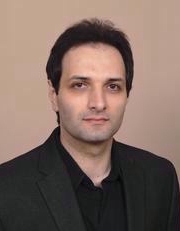
Reza Soltanian
Associate Professor, Hydrogeology, School of Environment and Sustainability
508 Geology-Physics Building
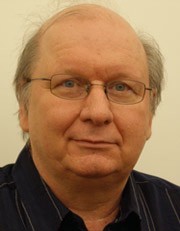
Tomasz F Stepinski
Thomas Jefferson Chair Professor, School of Environment and Sustainability
215 Braunstein Hall
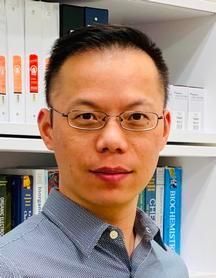
Yujie Sun
Professor, School of Environment and Sustainability
722 Rieveschl Hall
Yujie Sun (孙宇杰) received a B.S. degree in Chemistry from Fudan University in 2005. He then pursued graduate studies in inorganic photochemistry with Prof. Claudia Turro at The Ohio State University and obtained his Ph.D. degree in 2010. Subsequently, he joined the group of Prof. Christopher J. Chang at the University of California, Berkeley and Lawrence Berkeley National Laboratory as a postdoctoral scholar, working on renewable energy catalysis. Yujie started his independent career as an Assistant Professor at Utah State University in 2013, moved to the University of Cincinnati as an Associate Professor in 2018, and was promoted to Professor in 2023. His group is interested in developing and understanding inexpensive materials and complexes for energy catalysis and biomedical applications.
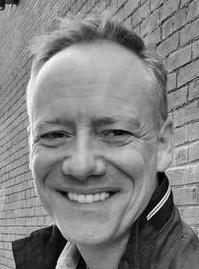
Eric J Tepe
Associate Professor
Curator of the Herbarium
,
School of Environment and Sustainability
703B Rieveschl Hall
Plant systematics, including taxonomy, phylogenetics, biogeography, and diversification of “giant genera” – those with over 1000 species – including Piper (Piperaceae) and Solanum (Solanaceae). Evolution of ant-plant associations. Visit my webpage for more details. Click here for the CINC herbarium webpage.
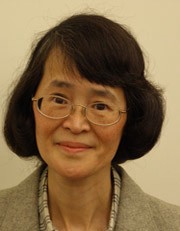
Susanna T.Y. Tong
Professor, Director of 2+2 Program in Geography, A&S Geography and Environmental Studies, School of Environment and Sustainability
400D Braunstein Hall
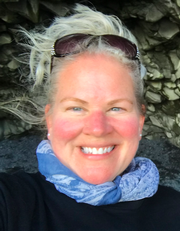
Jenny Wohlfarth
Educator Professor, School of Environment and Sustainability
5147 CLIFTCT
Now a full professor (in the educator/teaching track), she teaches a wide range of courses across the curriculum: Feature Writing & In-Depth Reporting, Magazine Writing, Environmental Journalism, Science & Nature Writing, Travel Writing, Women in Journalism, Advanced Magazine Writing, Magazine Publishing, and International Field Study in Journalism -- all courses she created and developed. She was the department's first director of undergraduate studies, from 2012-2019, and has served as faculty adviser for several student journalism groups, including the UC chapters of the Society of Professional Journalists (UC-SPJ), Association of Black Journalists (UC-ABJ) and a handful of student-run online magazines.
Professor Wohlfarth’s work has been published in numerous national magazines, covering topics ranging from art/design, architecture, agriculture and animals to business, environmental and social issues, nature/science and travel writing. She has been honored by numerous reporting awards from the Society of Professional Journalists for her work in feature/magazine writing, beat reporting and lifestyle reporting.
Her journalism career began shortly after she completed an undergraduate degree in creative writing (composition) at the University of Evansville (Indiana). She landed a full-time job in journalism—at a horse magazine in Texas—and quickly fell in love with reporting. She is a former staff editor/managing editor/executive editor at several national magazines—including the Cincinnati-based design publications HOW Magazine and I.D. (International Design) Magazine—and is a longtime contributing editor to Cincinnati Magazine. She is vice-president of the Greater Cincinnati Pro Chapter of the Society of Professional Journalists (SPJ), and an active member of the national SPJ, the Society of Environmental Journalists (SEJ) and, most recently, the National Association of Science Writers.
Professor Wohlfarth has been honored with numerous teaching/advising awards, including the UC Department of English William C. Boyce Award for Excellence in Teaching, the SPJ David L. Eshelman Outstanding Campus Adviser Award and the University of Cincinnati Honors Program’s Excellence in Teaching Award—all honors based on nominations from her students and advisees. In 2022, she was nominated by a student for the prestigious UC George Barbour Award for Good Faculty-Student Relations.
She has a keen interest in active-learning techniques and has co-presented on SoTL (scholarship of teaching and learning) topics at numerous conferences, including the International Lilly Conference for College Teaching and the International Society of the Scholarship of Teaching and Learning Annual Conference. She is an advocate of innovative, student-centered instruction methods, and has frequently been tapped to lead training sessions for faculty on active-learning techniques, contemplative teaching strategies and methods for increasing student engagement. Her professional work and her involvement in teaching faculty-led study-abroad courses for the UC Honors Program have enabled her to travel to and write about fascinating places around the world, including Mexico, Cuba, Costa Rica, Guatemala, Namibia and Iceland.
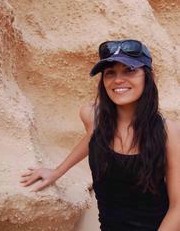
Yurena Yanes
Assistant Professor, School of Environment and Sustainability
520 Geology-Physics Building
Off-Campus Faculty Affiliates

Daniel Hart
Associate Director of Sustainability and Environmental Justice, University of Richmond
The former Sustainability Coordinator at the University of Cincinnati, Daniel teaches courses in sustainability, including Perspectives in Sustainability.
Staff
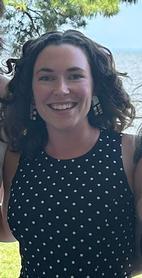
Madeline Yelle Jentsch
Program Coordinator, School of Environment and Sustainability
360D ARTSCI
Ekaterina Katzarova
Program Manager, School of Environment and Sustainability
CLIFTCT
Kristin Nicole Rice
Financial Administrator 1, School of Environment and Sustainability
360C ARTSCI